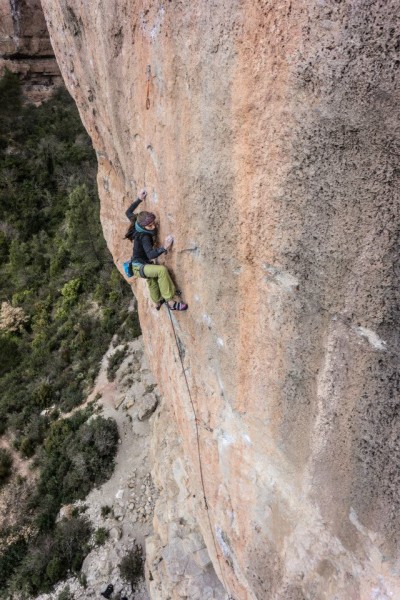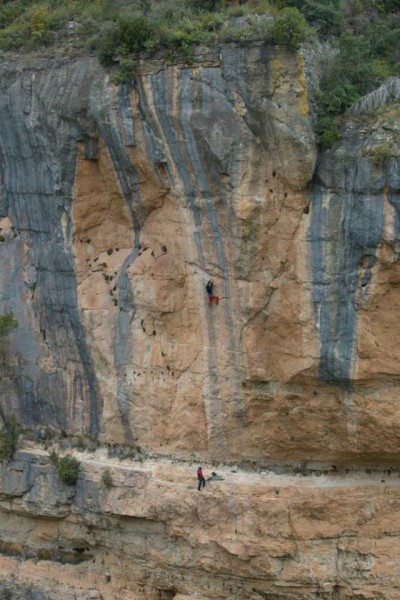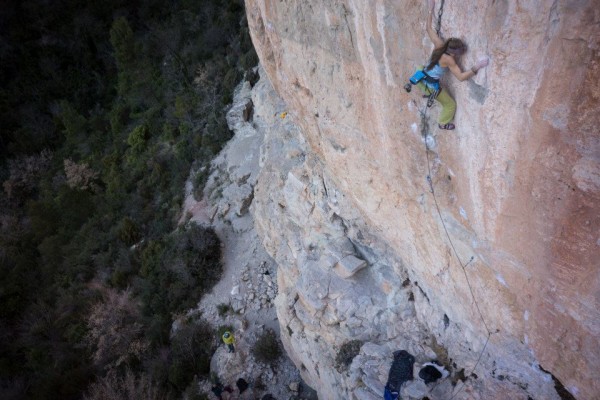“He told me there were three very important bases to progress in climbing or just to enjoy it,” Eline Le Menestrel and I sat on a small ledge below Pren Nota, a technical 8a in Siurana. The 16 year old had an impressive resume of climbs including Montserrat’s Sprint Final (8a+) and La Joia de La Corona (8a+) as well as six other 8a sport climbs. When she was 11, she asked her father and world class climber, Marc Le Menestrel to coach her for a bit.
In the 1980s, Marc Le Menestrel opened and repeated some of the hardest routes in France. In 1996, Le Menestrel established L’Alchemiste, in Fontainebleau, which is regarded as the famous bouldering area’s first 8B (V13). He is a legend in the climbing community for his contributions and his continued high level of climbing. Even though he climbs constantly with his wife and two daughters, Marc decided not to coach Eline.

“He told me that he did not want to do it because he thought that our relation could change and that he was not the good person to do it,” said Eline in between our attempts on Pren Nota. Instead he provided three insights, which I found to be better coaching than any number of hangboard routines.
“The first one is to be able to listen to your body, and to accept that we are not only a mind that gives orders to a body. This is a good way not to get injured,” Eline said. “So I learned how to respect pain, as it is the proof that our body tells us things.”
The sentiment rang true. Nothing stops climbing progression faster than an injury. Being able to climb is the best way to get better at climbing.
“The second one is to be nice and open with the other people that surrounds us when we climb. In order words: to be a good climbing partner and to help having a good atmosphere at the cliffs or wherever.”
In the past few weeks, I had climbed with numerous partners. Some, like Eline, were fun to climb with, offering solid belays and banters. Other partners were 5.14 bone crushers and annoying. I liked this insight as it helped not only individuals to have a good time but contributed to the group and the larger climbing community.

“And the last one is to cultivate our own passion, to be in contact with the little fire inside of us that makes us love climbing so much. Like this, even if we fall a hundred times we will still have motivation. It helps to have fun even the days that every thing goes bad in terms of performance.”

Eline and I continued to work on the route. I managed to complete the climb a few days later and Eline will be back for sure. Most importantly, we improved and had fun.

